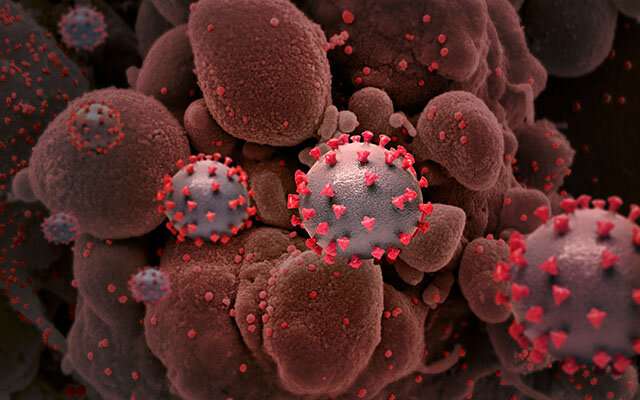Study supports shortened quarantine period among asymptomatic health care professionals exposed to SARS-CoV-2

New data published today in the American Journal of Infection Control (AJIC), suggest that healthcare professionals (HCPs) exposed to SARS-CoV-2 can safely return to work after seven days of quarantine if they are asymptomatic and receive a negative COVID-19 test. The findings, from the first reported study evaluating reduced quarantine duration in a healthcare setting, offer a potential new strategy for mitigating staffing shortages prior to a next wave of COVID-19 cases.
"Maintaining appropriate staffing in healthcare facilities is essential to increasing safety for both HCPs and patients," said Graham M. Snyder, MD, MS, University of Pittsburgh School of Medicine and UPMC Presbyterian, and senior author on the published study. "The COVID-19 pandemic will likely persist for years, and the findings from our study suggest that a thoughtfully designed program can enable certain HCPs to return to work seven days following a higher-risk SARS-CoV-2 exposure, alleviating the serious workforce shortages we experienced over the past two years."
Current CDC guidelines recommend self-isolation at home for 14 days following a higher-risk SARS-CoV-2 exposure to reduce the potential for transmission. However, the risk of developing symptomatic COVID-19 after seven days post-exposure is low, and CDC guidelines also suggest alternate approaches when workforce shortages exist. In January 2021, UPMC changed their HCP SARS-CoV-2 quarantine policy from 14 to 10 days, based on internal data demonstrating an extremely low rate of COVID-19 symptom development after 10 days post-exposure.
To evaluate the potential for asymptomatic HCPs to safely return to work (RTW) after a shorter quarantine period, Dr. Snyder and colleagues designed and implemented an evidence-based program in which HCPs returned to work eight days after exposure if they remained asymptomatic through day seven and if they had a negative result from a SARS-CoV-2 nucleic acid amplification test (NAAT) taken five to seven days post-exposure. The researchers then evaluated this program as a strategy for reducing workforce shortages during the COVID-19 pandemic.
Between January and June 2021, the study enrolled 384 unvaccinated HCPs who had a higher-risk workplace or non-household community SARS-CoV-2 exposure, were asymptomatic, and were <4 days from the date of last exposure. From among these HCPs, 333 (86.7%) remained asymptomatic after seven days, and of these, 323 (97%) received a negative nucleic acid amplification test (NAAT) and were therefore eligible for early RTW. Ultimately, 297 HCPs (92%) successfully returned to work a mean of 1.84 days early (relative to the standard 10-day quarantine), saving 546 workdays over a six-month period.
"This study provides valuable guidance for structuring RTW programs that will reduce the burden of COVID-19-related staffing shortages on our hospitals and health systems, while also protecting the health of both HCPs and patients," said Linda Dickey, RN, MPH, CIC, FAPIC, and 2022 APIC president.
More information: Healthcare personnel early return-to-work program after higher-risk SARS-CoV-2 exposure: A learning health system quality improvement project, American Journal of Infection Control (2022). DOI: 10.1016/j.ajic.2022.01.027





















